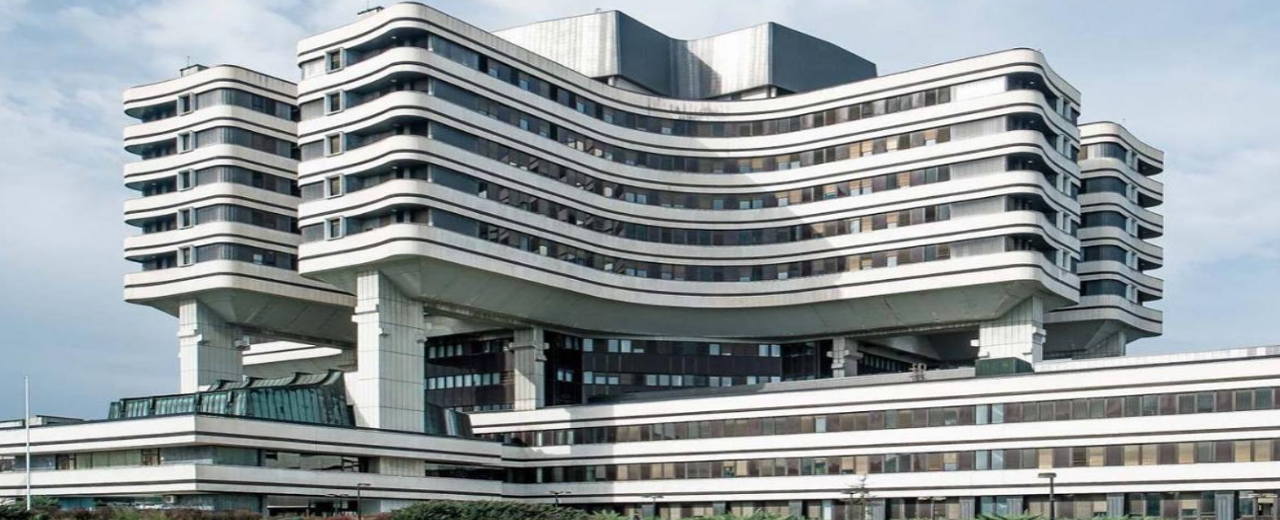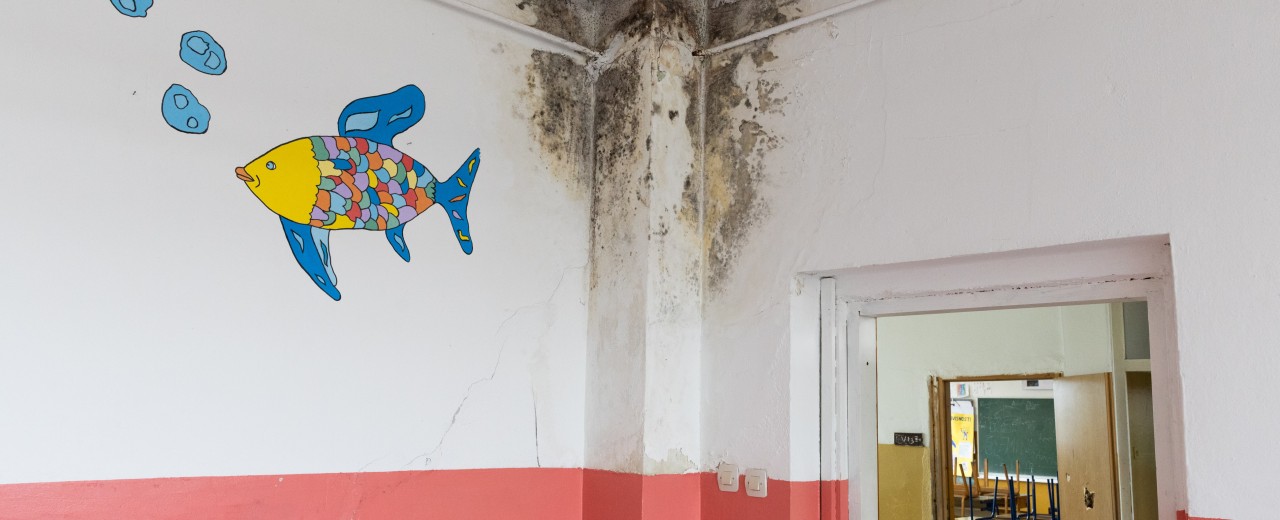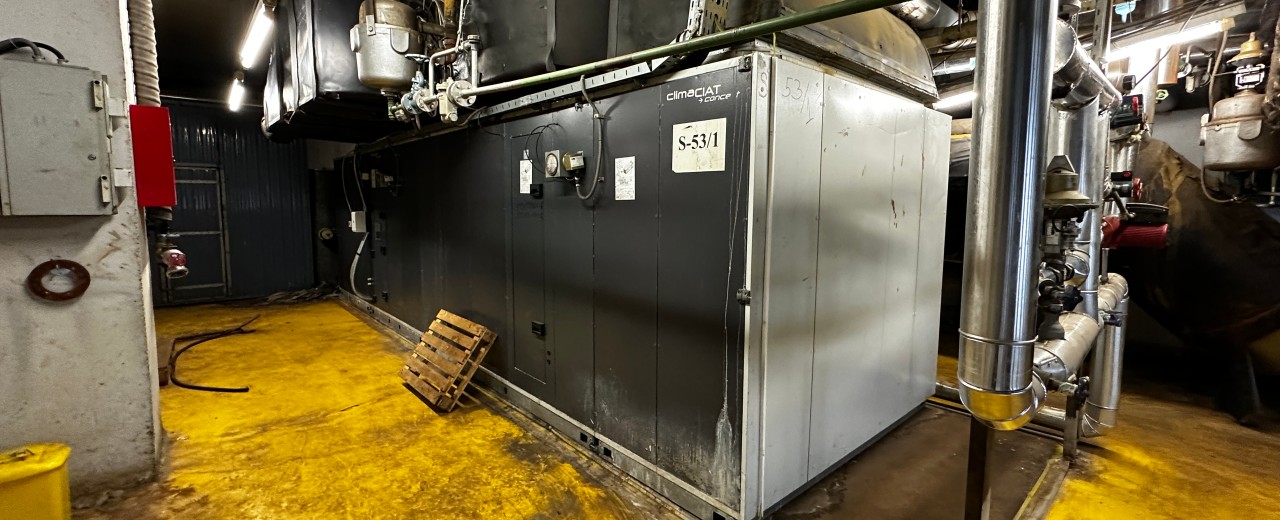Tip: Activate javascript to be able to use all functions of our website
Energy-efficient refurbishment of public facilities
Western Balkans: Holistic approach to building renovation
It is one of the largest hospitals in Europe: the VMA – the abbreviation refers to its origins as a "medical military academy" – has 17 operating theatres, more than 6,000 rooms and around 1,200 beds in the Serbian capital Belgrade. Spread over 15 floors, it occupies an area of over 180,000 square metres – a size of more than 25 football fields. Opened in 1982, the hospital today is far from meeting the requirements of construction and energy. The VMA is ageing.
This is affecting both medical staff and the 400,000 patients who are treated by the hospital every year despite all the shortcomings.
The good news is that two years ago, construction began for a comprehensive refurbishment of the VMA. On behalf of the German Federal Government, KfW Development Bank is providing EUR 50 million for financing in the first of three planned construction phases. An additional EUR 5 million comes from the European Union.
On behalf of the Federal Ministry for Economic Cooperation and Development (BMZ) and the European Union, KfW Development Bank has long been involved in Montenegro, Albania, Serbia, Bosnia and Herzegovina, North Macedonia and Kosovo.
It all began in 2012, when KfW was commissioned to finance renovation measures in 15 Montenegrin schools. Since then, it has financed the construction of some 200 buildings through 15 projects. The aim of KfW’s commitment in the region is the energy-efficient renovation of public facilities. In doing so, however, it does not only want to reduce greenhouse gases in the Balkans. With its holistic approach, KfW also improves the living conditions and health of local people.
Energy consumption in the Western Balkans is well above the EU average. One reason for this is the low energy efficiency of the buildings. It accounts for 40% of energy consumption and more than a third of CO2 emissions. The VMA in Belgrade shows why this is so: similar to the hospital, the building stock is very old in the region.
The government has also spent little money on maintenance and energy modernisation. This is not only bad for the climate, but also leads to tight finances. In the Balkans, too, energy has become more expensive in recent years. The ailing, energy-intensive buildings are therefore increasingly burdening public budgets. This makes it even more difficult to allocate the funds for the necessary modernisation measures. A vicious circle.
This makes it all the more important for institutions such as KfW Development Bank to close the financing gaps through loans. With a view to energy efficiency measures, KfW is thus helping to insulate roofs and walls, insulate cellars and replace windows. However, the installation of heat pumps, biomass boilers and photovoltaic systems financed by it also make it possible for public buildings to save 50 to 70% of energy. This reduces CO2 emissions and relieves strained budgets.

If the greenhouse gas reductions from all energy efficiency projects in the public buildings of KfW in the Western Balkans are added up, the result is a CO2 saving of around 85,000 tons per year. Energy consumption has decreased by around 170,000 megawatt hours over the same period. On the basis of current market prices, this should lead to a reduction in household expenditure of EUR 8.4 million per year.
The local economy also benefits from the energy efficiency loans, because KfW usually works with local providers to implement its programmes. At the same time, German SMEs are seizing their opportunity. For example, German window manufacturers have now set up production facilities in the Balkan countries in order to benefit from the catch-up demand for energy renovation in the region.
If a public institution in the Western Balkans is interested in KfW funding, it must agree to an energy assessment of the building. KfW uses software that it has developed in cooperation with the Fraunhofer Institute. The application draws up an internationally recognised energy certificate of the building on the basis of EU standards.
Experts can thus calculate a comprehensible before-and-after comparison of the energy requirements of a building. In this way, it can be determined how much a renovation measure has reduced energy consumption. The findings can be transferred to future projects and promote a better understanding of the interrelationships in the field of energy efficiency in buildings.
Often it is the citizens who suffer from the dilapidated infrastructure. For example, schools with windows that let the wind pass through are not a good learning environment. In the VMA hospital, patients have also complained time and again about cold rooms and an unpleasant indoor climate. For this reason, KfW Development Bank pursues a holistic approach that focuses not only on energy efficiency but also on quality of residence and structural measures.

Improvements in these fields can be achieved, for example, by renovating electrical or sanitary facilities or by optimising fire protection. In order to ensure that these areas are taken into account in investment projects, KfW stipulates that 15% of project budgets must benefit the quality of residence and 35% structural measures. The remaining 50% of the budget is earmarked for traditional energy efficiency measures.
The motto of KfW is: Energy efficiency is more than just energy saving and CO2 reduction. With the holistic concept of KfW, the life cycle of the buildings can be extended by 30 to 50 years. At the same time, the holistic approach is specifically aimed at improving the comfort and health of local people.
KfW is currently financing ten projects in the Western Balkans. One of them is the rehabilitation of the VMA hospital in Belgrade. It is the largest project to date that KfW has undertaken in the region. But the hospital is too important for the city and the countryside to be closed for the time of the renovations.
The refurbishment must therefore be carried out while the system is in operation. And it is not a question of a few cosmetic interventions: the sanitary facilities, the electrical lines, the heating, ventilation and cooling system and their pumping systems must be replaced. The roof, the exterior façade and the windows also leave something to be desired. Fire protection and the building automation system are no longer state of the art either.
The aforementioned shortcomings have not been without consequences for the Belgrade clinic. For example, the VMA consumes twice as much electricity, 2.5 times as much heat and 5 times as much water as a medium-sized German hospital. Comprehensive renovation should roughly halve the VMA’s consumption – reducing both costs and CO2 emissions. Comfort in the hospital will also improve. The 400,000 patients of the VMA will then be added to the 60,000 people who are already benefiting from KfW’s energy efficiency projects in the region.
Share page
To share the content of this page with your network, click on one of the icons below.
Note on data protection: When you share content, your personal data is transferred to the selected network.
Data protection
Alternatively, you can also copy the short link: https://www.kfw-entwicklungsbank.de/s/enzB8wGT
Copy link Link copied